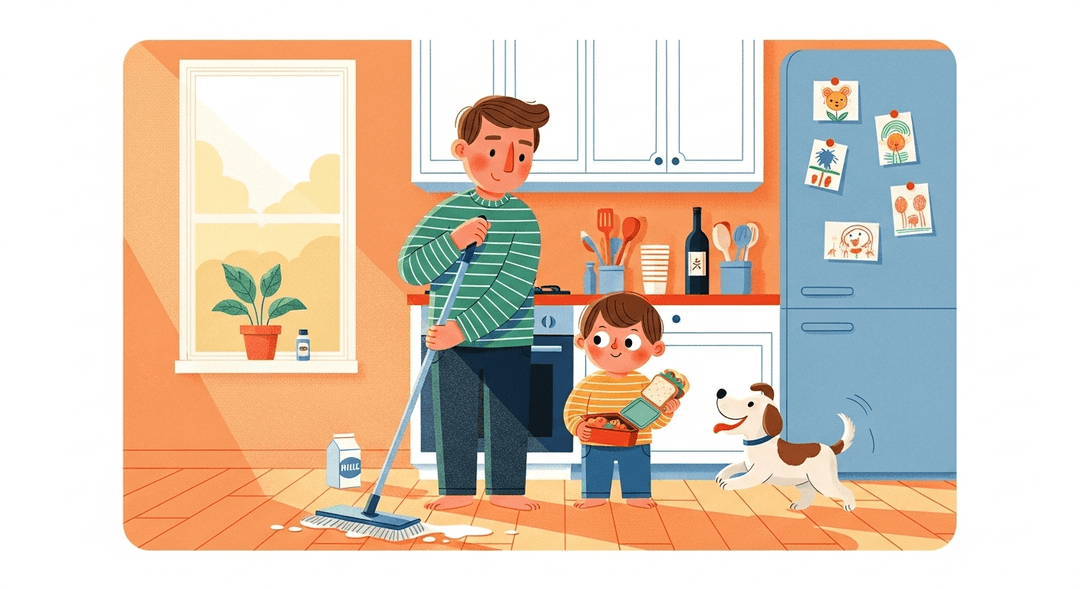Frame Mistakes (Yours and Theirs) as Learning Opportunities
Ever found yourself knee-deep in a mess (literal or emotional) and wondered, 'Is this a parenting fail or just Tuesday?' Turns out, every disaster—spilled milk, forgotten lunches, that time you called your kid by the dog's name—can be spun into a teachable moment. If you’re tired of feeling like the world’s clumsiest circus performer, this is your cheat code for turning 'oops' into 'aha!' (or at least, into a story you’ll laugh about next year).
Framing mistakes as learning opportunities builds resilience, growth mindset, and emotional flexibility in your kid (and, let’s be real, your own frazzled brain). It helps kids develop grit, reduces shame, and actually strengthens neural pathways for problem-solving and emotional regulation. Plus, parents who model this are less likely to spiral into guilt and more likely to laugh at life’s plot twists—bonus points for sanity preservation.
How to do it
-
When a mistake happens—whether it’s yours, theirs, or even the dog’s—pause and take a breath. There’s no need to launch into a big lecture about failure right away.
-
Narrate what happened using plain, judgment-free language. For example: “Looks like the juice went everywhere!”
-
Ask curious questions to encourage problem-solving. Try something like: “What could we try differently next time?”
-
Share your own goof-ups to normalize mistakes. Yes, even that time you wore your shirt inside out to daycare counts!
-
Celebrate the learning that comes from mistakes, not perfection. Give high fives for effort and trying, rather than for spotless results.
Key Tips:
- Stay calm and avoid overreacting to mistakes.
- Use neutral language to describe what happened.
- Encourage curiosity and brainstorming for future solutions.
- Model self-compassion by sharing your own slip-ups.
- Focus on growth and effort, not flawless outcomes.
